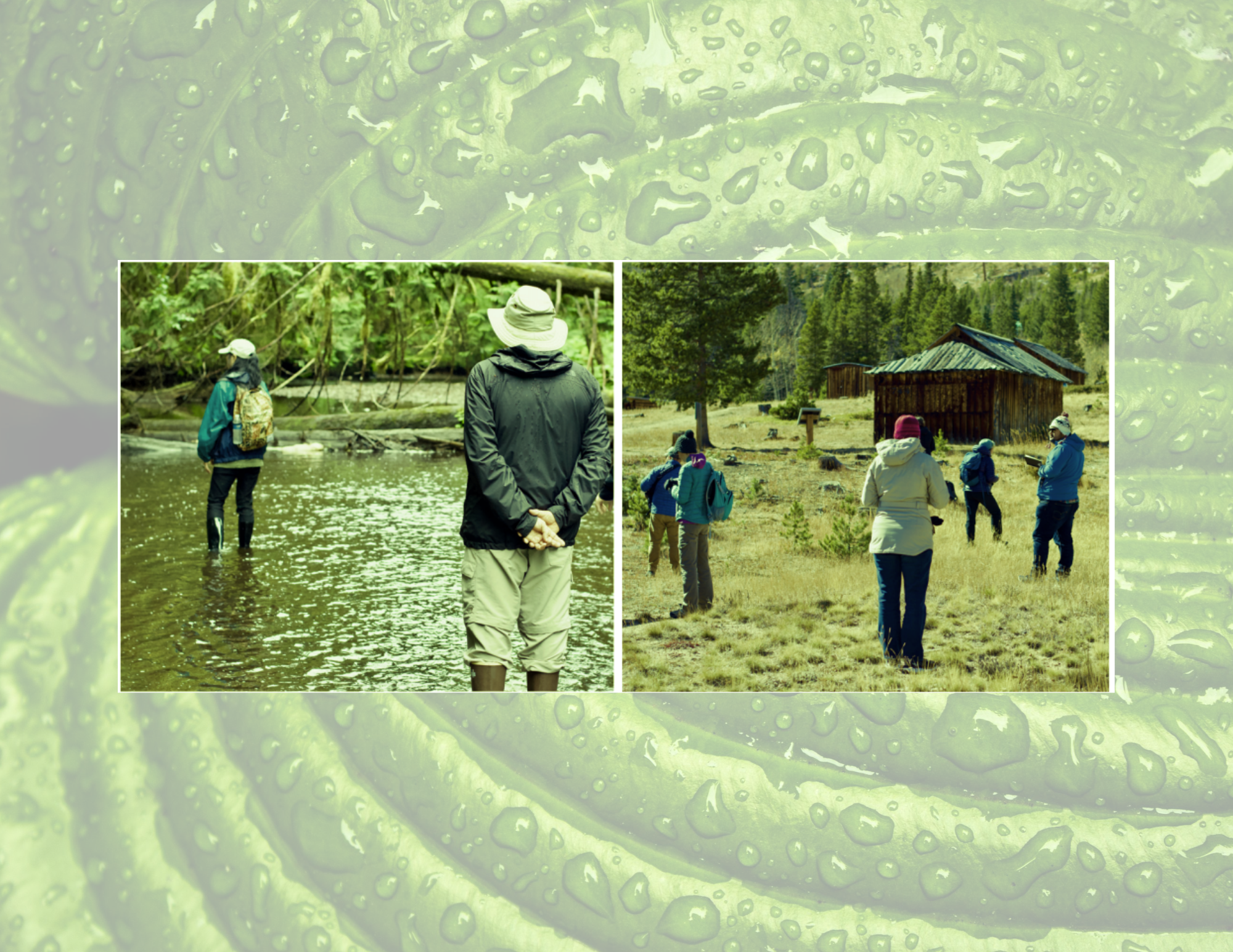
Hello everyone! My colleague Dr. Christie Poitra from the MSU Native American Institute and I are excited to share Honoring the Whole Student: Developing Space for Native American Students in STEM by Supporting Complex Identities with all of you. In this post, we share our motivations, goals, and intentions for the use of Honoring the Whole Student by STEM faculty. You can access Honoring the Whole Student here.
As many of you know, my research is focused on supporting teachers in developing more equitable learning environments in NGSS classrooms. The Framework for K-12 Science education specifically encourages culturally responsive science instruction, that centers community knowledge and practice in science learning (NRC 2012, Bang & Medin, 2010). While many researchers are working on this at the K-12 level, few practical resources exist to support instructors in culturally responsive STEM instruction - both at the K-12 and the post-secondary level. Our development of the Honoring the Whole Student workbook was inspired by the lack of culturally humble, Diversity Equity and Inclusion (DEI) resources specific to the experiences of Native American students in STEM fields. Our goal is to provide STEM faculty the practical support required to foster a deeper understanding of STEM Native American student’s needs by generating conversation, and reflection about the unique challenges these students face.
First, we would like to highlight that engaging with this resource requires the learner to approach these activities in an authentic, and culturally humble way. Cultural humility is the view that working with diverse communities is a lifelong learning commitment, that calls for honest self-reflection and self-awareness (Tervalon, Murray-García, 1998). Our hope is for STEM faculty and academic staff interested in DEI issues to engage with the activities in this workbook to specifically support a focus on Native American students. Honoring the Whole Student can be used to supplement the work of faculty and academic staff already collaborating around DEI initiatives - either individually, or within a DEI learning community - and we also intended for individuals looking for resources on supporting Native American students to use this more broadly.
Honoring the Whole Student responds to broad-sweeping deficit narratives about Native American students by providing STEM faculty with reflection activities specifically centered on asset perspectives. We acknowledge that our work cannot represent an all-encompassing view of Native American student identities, and so It is important not to assume all Native American students have the same experiences in higher education or will require the same type of support. Furthermore, it is damaging to view this workbook as all-encompassing of Native American identities and lived experiences. Native American students are not monolithic and represent a broad spectrum of intersectional identities. We advocate first for listening to your students’ needs, and problem- solving issues together when they arise. Our hope is that the activities presented in this workbook support asset perspectives of Native American students in STEM fields, and increase comfortability with having meaningful conversations with the students in your courses.
We hope that the activities and reflections provided in Honoring the Whole Student support the development of inclusive STEM learning experience for your Native American students. We welcome feedback on our work and any questions that you have about supporting Native American Students in your classes. Once you have finished using the workbook, we would also appreciate you sharing your thoughts in our survey!
You can follow Angie Kolonich @akolonich and Christie Poitra @Dr_Poitra on twitter!
References and Further Reading:
Bang, M., and Medin, D. (2010). Cultural processes in science education: Supporting the navigation of multiple epistemologies. Science Education, 94(6), 1,008-1,026.
Kolonich, A., Richmond, G., & Krajcik, J. (2018). Reframing Inclusive Science Instruction to Support Teachers in Promoting Equitable Three-dimensional Science Classrooms. Journal of Science Teacher Education. (29)8, 693-711. https://doi.org/10.1080/1046560X.2018.1500418
National Research Council. 2012. A Framework for K-12 Science Education: Practices, Crosscutting Concepts, and Core Ideas. Washington, DC: The National Academies Press. https://doi.org/10.17226/13165
Tervalon, M., & Murray-García, J. (1998). Cultural Humility Versus Cultural Competence: A Critical Distinction in Defining Physician Training Outcomes in Multicultural Education. Journal of Health Care for the Poor and Underserved 9(2), 117-125. doi:10.1353/hpu.2010.0233
Poitra, C., Kolonich, A., Smythe, W. & Tyler, Q. (2020). Honoring the Whole Student: Developing Space for Native American Students in STEM by Supporting Complex Identities. East Lansing, MI: Native American Institute. https://www.canr.msu.edu/nai/projects/Honoring_the_Whole_Student_workbook.pdf


